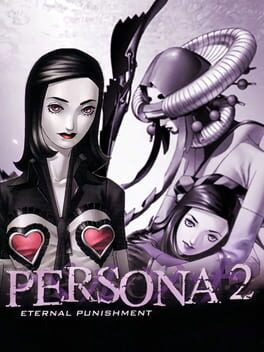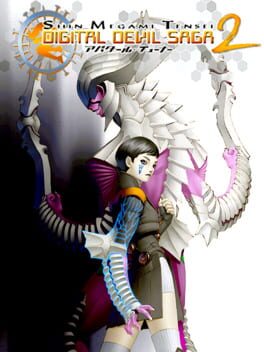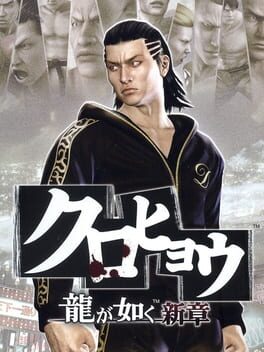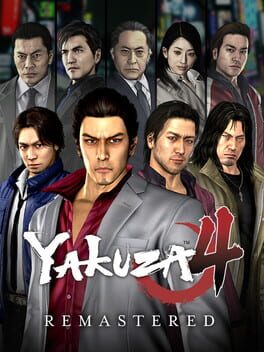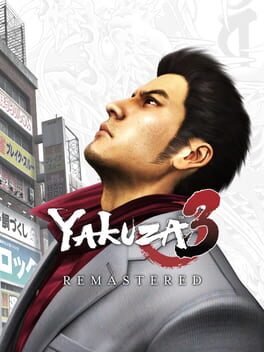zandyne_
I no longer use the 5-star ratings system as I feel they don't accurately represent how I feel about games
The top 5 rotates frequently and I'm pulling from a list of like 25 games
English OK. JLPT N4.
Badges

Listed
Created 10+ public lists

Treasured
Gained 750+ total review likes

GOTY '23
Participated in the 2023 Game of the Year Event

Donor
Liked 50+ reviews / lists

Famous
Gained 100+ followers

Elite Gamer
Played 500+ games

Pinged
Mentioned by another user

Trend Setter
Gained 50+ followers

Gamer
Played 250+ games

Adored
Gained 300+ total review likes

2 Years of Service
Being part of the Backloggd community for 2 years

Popular
Gained 15+ followers

Loved
Gained 100+ total review likes

Well Written
Gained 10+ likes on a single review

Best Friends
Become mutual friends with at least 3 others

GOTY '22
Participated in the 2022 Game of the Year Event

On Schedule
Journaled games once a day for a week straight

Gone Gold
Received 5+ likes on a review while featured on the front page

N00b
Played 100+ games

Liked
Gained 10+ total review likes

Noticed
Gained 3+ followers
Favorite Games
580
Total Games Played
012
Played in 2024
001
Games Backloggd
Recently Played See More
Recently Reviewed See More
There's no way I'm gonna lose.
As a lifelong fan of the Final Fantasy series, experiencing the magnificence of Final Fantasy VII Rebirth was an emotional journey unlike any other. Serving as a direct sequel to the acclaimed Final Fantasy VII Remake, this installment not only honors the beloved classic but also charts a bold new course, expanding upon its rich lore and characters in ways that are both awe-inspiring and deeply resonant.
From the moment I stepped back into the dystopian city of Midgar, I was enveloped in a world brimming with wonder and danger. The attention to detail in the environment design is nothing short of breathtaking, with each location meticulously crafted to evoke a sense of nostalgia while introducing fresh elements that keep the experience feeling vibrant and alive. Whether I was navigating the labyrinthine streets of Sector 7 or scaling the towering plateaus of the Shinra Headquarters, every corner of the world felt meticulously realized and ripe for exploration.
One of the most striking aspects of Final Fantasy VII Rebirth is its narrative depth and complexity. Building upon the foundation laid by its predecessor, the sequel delves deeper into the intricate web of politics, spirituality, and personal vendettas that define the world of Gaia. The story unfolds with a sense of urgency and gravitas, weaving together the destinies of its diverse cast of characters in a tapestry of epic proportions. Moments of heart-wrenching tragedy are juxtaposed with scenes of triumphant heroism, creating a narrative arc that is as emotionally resonant as it is captivating.
Moreover, Final Fantasy VII Rebirth introduces a host of new gameplay mechanics and features that elevate the experience to new heights. The revamped combat system seamlessly blends real-time action with strategic decision-making, allowing for dynamic battles that are as exhilarating as they are tactical. The inclusion of new playable characters and summonable allies adds depth to the party dynamics, offering players a wealth of options for customizing their playstyle and overcoming formidable foes.
In addition to its engrossing single-player campaign, Final Fantasy VII Rebirth also delivers an immersive multiplayer experience that allows players to join forces with friends and strangers alike in epic battles against powerful adversaries. Whether teaming up to tackle challenging dungeons or competing in intense PvP matches, the multiplayer component adds a new layer of social interaction and replayability to the game, ensuring that the adventure never truly ends.
Overall, Final Fantasy VII Rebirth stands as a testament to the enduring legacy of one of gaming's most iconic franchises. With its breathtaking visuals, emotionally resonant storytelling, and engaging gameplay, it represents the pinnacle of what a modern RPG can achieve. Whether you're a longtime fan of the series or a newcomer eager to embark on an unforgettable journey, Final Fantasy VII Rebirth is an absolute triumph that demands to be experienced.
“Because that is this country’s very foundation.”
Yakuza 4 is rough and sloppy. It’s got a ton of loose ends and demands some touching up. However, its deep and thorough reverence for series’ legacy can’t be overlooked. If you can look past the iffy occasional plotline, 4 is a thorough mechanical exploration of the series and its ideological framework. Broken men accustomed to a broken system, and yet punching their way up through pure meathead tenacity and physical brutality. Vested interest in noble samurai myth, modernized in Japan’s organized crime. Despite their many shortcomings, however, the four men atop the Millennium Tower hold a shared conviction.
Imbued with Koichi Yamadera’s swagger and nonplussed voice lines, Shun Akiyama exists as Kamurocho native. He doesn’t drop in to visit when things get rough, he’s lying around in his office during the dry patches when alleged virtuous yakuza come storming down the street. Akiyama’s seen it all, the absolute height of stature and the nadir of poverty. He’s not above sharing a couple beers with the homeless discarded around West Park. After three mainline games of steamrolling everything in sight as Kiryu, Akiyama is a nice refresher that places the world the men share in a new perspective. Suddenly, even the most petty and minute yakuza feuds become huge headaches. The ebb and flow of crime and commerce in Kamurocho is just something you get used to.
To the confusion of Kanemura’s goons, Akiyama isn’t in it for money. He’s got more of that shit than anyone could ever need. He’s like a god, strolling through the city knowing anyone that fucks with him gets the good old one-two capoeira treatment. Akiyama owes his life to the yakuza. Nishiki’s explosive departure back in ‘05 gave him an extra chance out of the life stripped away from him by the powers that be. And if that wasn’t good enough, good old Arai meted out his brand of justice to anyone looking to rob a desperate homeless man. Shun’s got nothing but respect for Arai – in his eyes, a spitting image of a future chairman. Just as the man gave him the means to pursue greater things, Akiyama’s in love with the idea of offering his own second chances to clients.
Taiga Saejima takes matters into his own hands. No bullshitting around, no asking questions until after things are done. He’s resilient as an ox, and chained down by his eighteen sins carried out all the way back in 1985. RGG Studio plays around with the idea of a good-natured yakuza grunt funneled through 25 years of The System. Saejima doesn’t have the charisma of an Akiyama or a kind of tactical mind like those moving him around as a chess piece, but he exists as an immovable wall. Saejima contrasts with Kiryu and Majima in the utter disgust he views his own legend with. He won’t look back ‘cause he cares way more about helping Sasai out than anything else, but the 18 men he took out haunt him every day. Detached civvies stand around Purgatory, treating him like a circus act – waiting for the tiger’s ferocity to dominate deathmatches. But Saejima is scared shitless of putting down another man ever again. Nobody understands the weight of life more than a man with a conscience that’s taken it.
Majima processes his trauma through his facade of the Mad Dog, an idea further touched on in Zero and Kiwami 2. The immense guilt from leaving his brother behind, and the fear of getting tricked by an asshole like Shibata again shares him shitless. But Saejima doesn’t really have that kind of tool. There’s nothing he uses to help him sleep at night, to him getting drunk on a delusion or distraction to help him sleep would mean he’s forgotten the eighteen lives he believes he’s stolen, even if just for a night.
Guy wanted nothing more than to save his stepsister and make sure she had a proper organ transplant, but ends up signing off his life to the Sasai Family, serving their beck-and-call. Despite always being under someone, Saejima chooses to be that way. He’s no charismatic magnet, but he attracts those around him willing to listen and change. Fundamentally, even if it’s for the sake of someone else, the man faces everything head-on.
Yasuko tells Tanimura his brother wanted to be a teacher. While he’s got no chance these days of being in the education system, Saejima naturally gravitates towards his mentor role. When he’s able to look past his guilt and self-loathing, the man’s able to pour into young men looking up to him. The Sodachi Dojo reinforces this idea and the way he encourages Kido to face shit head on is inspiring.
Tanimura’s a weird guy. If Akiyama is king of the night, running a good chunk of Kamurocho’s businesses, Tanimura’s here for the little nooks and crannies of the city. He knows he’s not a saint, and doesn’t care either. Meandering about day to day, knowing he can strong arm the healthy black market in the city. What’s there to say about him? He’s a dirty cop that fits the similarly coarse setting of the city. Compared to the seemingly morally righteous Arai, Tanimura doesn’t try to back up his shit with any kind of lofty speeches. He’ll empty a mag inches away from your head if it gets you talking. This fictionalized archetype of “bad cop” fits great with the storyline and adds a well-deserved extra dimension to Kamurocho.
Yakuza 4, and the series as a whole, is tied together by Kiryu’s conviction. He’s a pretty well-rounded guy by this point, living comfortably as a living legend and carrying on Kazama’s legacy through his orphanage. Kiryu’s inspirational words drive Yakuza 4: even the biggest pieces of shit can come around and learn to confide in others. Hamazaki, the guy who eats duck bones like potato chips and leaves bombs in suitcases, the man willing to surprise poke Kiryu in the gut, can still choose what little he has left of his life to shape a better world. Kiryu and Saejima are similarly bull-headed guys that have gone through it: losing their loved ones and being forced to adjust to a criminal world so incredibly drastically different from their glory days. It sucks, but Kiryu’s seen this shit before. After Yasuko croaks, Kiryu’s the one to push his ass into action.
“Too many people depend on us. Their dreams depend on us.”
Kiryu’s messed up quite a bit. He’s fundamentally split between his second life raising kids and the enormous Kanto criminal organization he pretty much walked straight out of. His routine of slipping in to help out when shit gets real bad and pulling out the whole rest of the year might be convenient, but the incredibly variable nature of his arrivals means the Tojo Clan is slowly dying. Daigo’s more aware of this than anybody else, and the rosy ideals of Kiryu don’t really convince him anymore. After the Hakuho Clan falling apart with Mine’s death, what else is he supposed to do? In his eyes, they’re pretty much screwed. And yet, it’s so incredibly damn important that the way of life we’ve vicariously lived through these past few games is preserved. Kiryu and Saejima need to fight for the Tojo Clan:
“It’s the only proof that guys like us ever existed.”
Yakuza 4 fully comes to terms with the series’ romanticizing of yakuza and places it within a deeply corrupt framework, distilling series tropes of backstabbings and betrayals down to rapid-fire gunshot sequences almost beyond parody. The reality of the yakuza, and the Kamuro police, is they’re deeply sinister and morally bankrupt. Despite it all, we can still aspire to meet Kiryu’s undying conviction.

